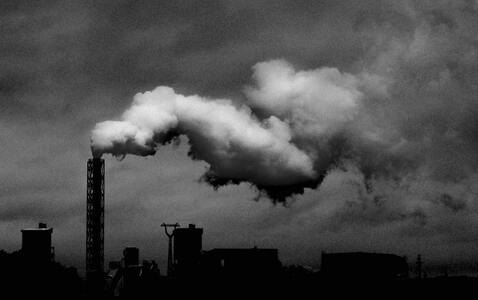1,000 signatures reached
To: Waimate District Council and Environment Canterbury
Oppose the Waste-to-Energy incinerator in the Waimate District

We call on the Waimate District Council (WDC) and Environment Canterbury (ECan) to submit to the Environmental Protection Autority (EPA) against 'Project Kea', the proposal to build a huge polluting rubbish incinerator in the Waimate District.
Why is this important?
'Project Kea' is a Waste-to-Energy project that would incinerate large volumes of waste. If constructed the plant would truck in 365,000 tonnes of waste annually to burn and generate modest amounts of electricity.
Waste-to-energy plants release dangerous chemicals and carbon dioxide into the atmosphere. 'Project Kea would produce the equivalent CO2 emissions to an extra 100,000 cars on the road each year. Toxins that come out of the incinerator include dioxins, heavy metals, and particulates, which all pose a serious risk to human health.
🔥
Waste-to-Energy plants use vast amounts of resources to operate. 'Project Kea' would use 2.5 million litres of fresh water each day, 365 days a year, and burn in excess of 100,000 litres of diesel each year. Waste-to-Energy does not remove the need for landfills, as it requires the landfilling of 100,000 tonnes of toxic ash annually.
Beyond that, the plant will build in the need to find and supply more waste to feed the beast. Constant demand incentivises the creation of more waste and discourages zero-waste efforts. This moves us away from a more circular economy, acting within the limits of the natural environment.
Waste-to-Energy is an outdated waste disposal method that European countries are moving away from. The Waimate plant would be the first ever built in Aotearoa, but it could pave the way for more.
South Island Resource Recovery Limited's (SIRRL) proposal to build 'Project Kea' was to be decided in the Environment Court. However, the Government has included the proposal in its list of 149 projects for fast-tracking, removing it from the Environment Court and taking with it community input.
💚 This petition demonstrates our local support for our elected representatives to oppose 'Project Kea. If you oppose false solutions such as Waste-to-Energy, and want a more circular economy, please sign!
Find out more about the problems with waste-to-energy: https://zerowaste.co.nz/waste-to-energy-incineration/
Waste-to-energy plants release dangerous chemicals and carbon dioxide into the atmosphere. 'Project Kea would produce the equivalent CO2 emissions to an extra 100,000 cars on the road each year. Toxins that come out of the incinerator include dioxins, heavy metals, and particulates, which all pose a serious risk to human health.
🔥
Waste-to-Energy plants use vast amounts of resources to operate. 'Project Kea' would use 2.5 million litres of fresh water each day, 365 days a year, and burn in excess of 100,000 litres of diesel each year. Waste-to-Energy does not remove the need for landfills, as it requires the landfilling of 100,000 tonnes of toxic ash annually.
Beyond that, the plant will build in the need to find and supply more waste to feed the beast. Constant demand incentivises the creation of more waste and discourages zero-waste efforts. This moves us away from a more circular economy, acting within the limits of the natural environment.
Waste-to-Energy is an outdated waste disposal method that European countries are moving away from. The Waimate plant would be the first ever built in Aotearoa, but it could pave the way for more.
South Island Resource Recovery Limited's (SIRRL) proposal to build 'Project Kea' was to be decided in the Environment Court. However, the Government has included the proposal in its list of 149 projects for fast-tracking, removing it from the Environment Court and taking with it community input.
💚 This petition demonstrates our local support for our elected representatives to oppose 'Project Kea. If you oppose false solutions such as Waste-to-Energy, and want a more circular economy, please sign!
Find out more about the problems with waste-to-energy: https://zerowaste.co.nz/waste-to-energy-incineration/

